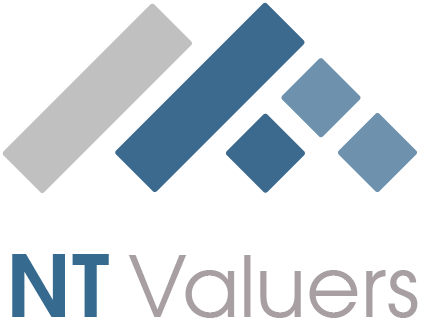
Refinancing is a crucial process for homeowners across the Northern Territory. The market value of one’s home is a vital component for capitalising on favourable market conditions or securing better mortgage terms. This is the role of a home valuation. The services of home valuers in Darwin are effective in helping homeowners maximise their financial outcomes.
Understanding the intricacies of home valuations and their influence on refinancing requires a thorough understanding of the basics of both concepts.
Home valuation services are designed to help determine the property's current worth in the market. This calls for a Certified Practising Valuer (CPV). They are trained to derive property value from reviewing a home's features, location, market trends and more.
When it comes to refinancing, a valuation will:
- help negotiate better loan terms
- secure favourable interest rates
- deliver potentially significant financial savings.
The NT real estate market is dynamic and fluctuates dramatically over time.
A home valuation will help property owners and lenders pursue refinancing and determine the loan-to-value ratio (LVR) and the overall risk assessment. A positive valuation can help homeowners boost their property's equity for various purposes such as consolidating debt, undertaking renovations or investing in other ventures.
In other words, valuations help homeowners leverage their property's worth to achieve their financial goals.
How does mortgage refinancing work?
When homeowners choose to replace their existing home loan with a new one, this is called mortgage refinancing. This is generally done in order to take advantage of superior interest rates or to access equity in their property.
The best way to help ensure favourable terms is with a real estate valuation.
Any lender will require a legally certified statement of a property’s true market value. Home valuers achieve these by analysing over 200 internal and external factors related to the property.
Lenders base the new loan amount directly on the results of the report.
If the property has increased in value since the initial purchase, homeowners may be eligible to access the increased equity and borrow against it. On the other hand, if the valuation indicates a lower value than anticipated, it may affect the refinancing terms and available loan options.
The benefits of valuation for refinancing
Residential valuations offer numerous benefits to homeowners when it comes to refinancing their property.
The most obvious benefit of any valuation is receiving an unbiased assessment of the property's worth. This is done through an exhaustive analytical process and a wealth of market research. Valuers will look at the overall desirability of both your property and the surrounding neighbourhood.
At the end of the service, clients receive a legally certified valuation report. This allows homeowners to make informed decisions regarding refinancing, ensuring they borrow an appropriate amount based on their property's value.
Another benefit is helping homeowners assess their equity position.
For clarity, equity in this context refers to the difference between the property's value and the outstanding mortgage amount. This information, if accurate, helps borrowers understand how much equity they can access and potentially utilise for other financial purposes.
If the valuation indicates a higher property value than anticipated, homeowners may be eligible for better interest rates, lower fees or increased borrowing capacity.
Finally, a high valuation can help prevent over-borrowing or inadequate loan-to-value ratios (LVR).
Lenders generally institute maximum LVR limits, which determine the amount they are willing to lend based on the property's value. These services can ensure they do not exceed the LVR limits and avoid the risk of over-borrowing.
How does a low valuation affect refinancing?
If your valuer determines a low current market value, this can significantly impact the refinancing process. Specifically, this will affect the loan terms and interest rates offered.
Low valuations, and subsequently high LVR, pose several challenges.
The higher the LVR, the more borrowers perceive the loan as a high risk. This will result in stricter lending criteria and a more limited pool of lenders willing to refinance the property. Overall, that means higher interest rates and less favourable loan terms.
A low valuation may also:
- require the borrower to provide additional funds as equity
- limit the amount of cash-out available for the borrower.
This is considered a significant financial burden.
A low market value can impact the overall affordability of the refinanced loan. This, in turn, negatively affects the borrower's financial goals and objectives.
In short, a low valuation can complicate the refinancing process, leading to higher interest rates, stricter lending criteria, the need for additional equity and limited borrowing options.
Do valuers tailor their services for refinancing?
Any property valuation service is tailored to the needs of the client. This goes for residential as well as commercial properties. Generally, tailoring a valuation is a matter of reconsidering the specific methodologies used and which aspects of the property are focused on.
For the most part, assisting homeowners with the refinancing process is a relatively standard affair.
Valuers will:
- conduct a physical inspection noting the property’s condition
- review market and economic trends
- assess recent sales data in the property's location.
This helps them understand the prevailing trends and fluctuations in property values in the area.
Unique to refinancing services, home valuers may collaborate closely with the refinancing lender to understand their specific requirements and guidelines. They will then ensure that their reports align with the lender's criteria and provide a comprehensive assessment of the property's value.
This allows a valuer to deliver a reliable and objective assessment of the property's value.
Contact one of our licensed valuers to receive a free quote on any of our services.







